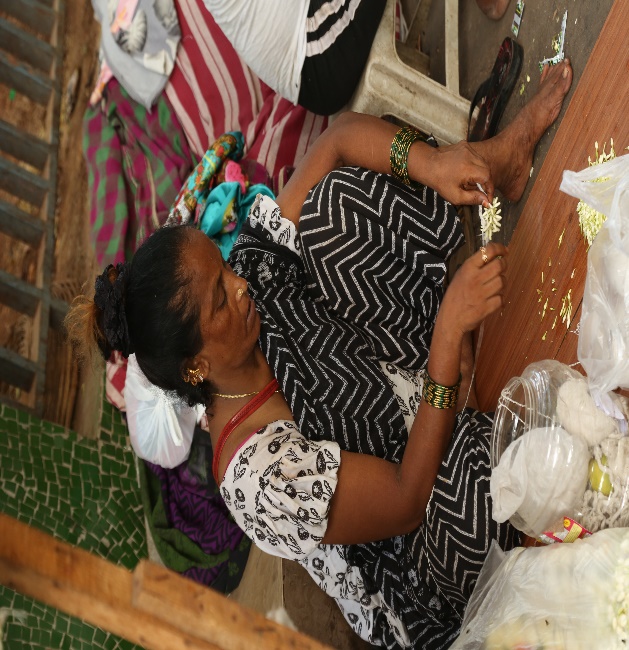Meet Gita
Rising from the clutches of poverty
Living in abject poverty, hope can take many forms. Fleeing your home with your young children in search for a better life to escape the clutches of domestic violence, takes a special kind of courage, reinforced with a strong sense of hope which Gita exemplifies.
“Run away with the children”, Gita’s mother-in-law told her amidst tears, “Your husband is losing his senses. He might sell your daughter for alcohol. Eighteen years ago, Gita was sitting on the floor of her small hut, crying and consoling her daughter of three years and son of six months. Her husband was physically and verbally abusing her because he wanted money for alcohol.
That night, Gita’s mother-in-law told her to run away. She was both shocked and appalled at this statement of hers. She remembers the day clearly, “How can I run away from my family home? Wasn’t this my children’s home too? Didn’t my mother tell me that my husband and I would be together for life?”
But Gita realised the harsh truth – she had no support from her husband. She also knew that in his greed, he could seriously harm her and their children. She would have to leave like her mother-in-law advised. But where would she go? How would she survive? How would she raise the children? All these questions worried her. However when her husband threw away their son’s milk and hit their innocent daughter, demanding money again, Gita decided to leave as soon as possible to keep her children safe. She packed her meagre belongings and moved out after taking the blessings of her mother-in-law.
What hope looks like
Gita fled to a nearby town to begin a new life. To ensure her children’s survival, she began doing all kinds of odd jobs – working as a house maid, an agricultural labourer and on construction sites. She worked for eighteen hours a day, with her young children in tow because she had nowhere to leave them. It was a strong sense of hope and ‘what could be’, that fuelled her.
Slowly, she earned and saved up enough to get a small room. Years passed by and Gita kept working and saving money. When possible, she also sent her children to local schools. Littered between the bad times were some good times. She made it through all of them and took care of her children despite all the odds.
I met Gita for the first time, when she attended one of our women empowerment workshops held in a rural hamlet. I was impressed by her strong sense of determination and her willingness to challenge the status quo. For the past few years the Foundation has helped Gita develop a small business. She has made a great success of this venture and is seen as a role model to many women in a similar predicament.
Gita is now a community ambassador for the Foundation, helping other vulnerable women turn their lives around. Gita lives with her son and daughter in her own house. She has furnished it with basic amenities and is now saving up for the future marriage of her children. From being out on the streets alone, working odd jobs to having her own home and a strong income, Gita has come a long way. She has risen from the worst clutches of poverty by sheer determination, reinforced by an unshakeable sense of hope.
The power of possibility
The idea that an infusion of hope can make a big difference to the lives of the poorest, sounds like something dreamt up by well-meaning activists or tub-thumping politicians.
Although there is deep pain, suffering that cannot be cured by platitudes behind Gita’s anxiety is a deeper story: there’s still more healing to come. Moreover, it would be easy to look at Gita’s original situation and see despair. However she managed to turn her situation around and is now in control of her own destiny.
There is also a strong sense of possibility. …that looks like hope. Gita was isolated and extremely vulnerable until her mother in law confirmed her situation was critical. This gave her the impetus and legitimacy to leave behind a dangerous existence, even allowing for the uncertainty of what lied ahead.
